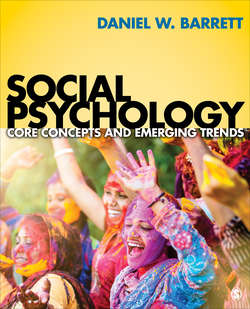Читать книгу Social Psychology - Daniel W. Barrett - Страница 126
На сайте Литреса книга снята с продажи.
HEURISTICS: MENTAL SHORTCUTS
ОглавлениеIn an ideal world, beliefs would be based on careful assessment of relevant evidence. However, we inhabit a world in which we are faced with information overload, continuous, competing distractions, and frequent pressure to multitask. These factors minimize our ability to engage in the controlled processing needed for a thorough review of the information and consequently we make many judgments in a quick and cursory fashion (Goldstein & Gigerenzer, 2011; Hertwig & Hoffrage, 2013; Kahneman, 2011). Given the trade-off between accurate processing and conserving mental resources, we sometimes forego accuracy for expediency, and this can lead to mistaken beliefs or inferences. That is, we often take mental shortcuts so that we can make rapid decisions either because we are not motivated to think carefully or we do not have the ability to do so. When either or both are the case, we may utilize intuitive strategies that will quickly lead us to a conclusion. These strategies are called heuristics or mental shortcuts, and they facilitate rapid inferences without much thought (Gilovich & Griffin, 2010; Tversky & Kahneman, 1974). Oftentimes these heuristics or rules of thumb produce successful or accurate judgments, and therefore, it makes sense for us to save time and mental energy and rely on them (see Table 3.3). However, they are easy to use, and this increases the likelihood that we will resort to them when we should not, which can lead to incorrect conclusions.
